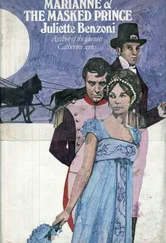“So. So,” Berta said, and after a long pause: “Papa needs his suit? Yes. That may well be.” She let the suit be dragged off her arm and didn’t even wince when Little Berta stuck out her tongue, in all its splendor, as far as possible, before running off to Papa with the suit.
Wilhelm, now in his work uniform, tapped Berta on the shoulder, all the while smiling his Wilhelm-smile, ever at the ready for whatever occasion may arise, and the affectionate knowingness that lay behind it brought back to Berta her worries about the weight of things; she nodded in affirmation, saying, “Well then. You have to hurry if you want to arrive on time. Go now, Wilhelm. Go now. I have a lot to do here.”
“When I’ve returned,” he said, “perhaps we’ll have the chance to talk …?”
Berta nodded, cast a thoughtful glance at Wilhelm’s chauffeur cap: “It really is a handsome uniform. It suits you so well,” she said, and turned toward the dresser. “Let’s not hold each other up,” she added, and before he left apartment 12 in building 13 on Allerseelengasse, he went into the kitchen to say good-bye to Rudolf and Little Berta with a kiss on the head for each. Berta looked back thoughtfully at the painting of the Madonna, sighed, and turned to the kitchen, where Rudolf and Little Berta were jabbing listlessly at their plates and observed her entrance with sour looks on their faces.
“The nightgown really suits you,” said Berta to Little Berta, and thought of the Madonna’s blue, undulating cloak in the painting. Little Berta said nothing. Rudolf said nothing. The dinner dragged on; Berta’s attempts to brighten Rudolf and Little Berta’s faces only clouded them over further.
“All in all, it was still quite a nice trip, in some ways?”
Nothing.
“Isn’t there anything nice we can say about it? About the new car, for instance? Or the pretty roses? Did you see the pretty roses?”
Nothing.
Berta leaned her head toward Rudolf as though she was hard of hearing. “What did you say?” She strained to listen for a moment, then turned to Little Berta and asked her, “Or was it you who said something?”
Nothing.
After turning over in her mind what else there might be for her to say, Berta shrugged and stood up: “Well then. It’s getting late.”
Rudolf nodded in agreement, tilted his head to one side, and appraised his mother with a critical-contemplative gaze.
I KNOW WHAT’S WHAT
After a while, the boy asserted firmly: “Anyhow, I’m thirteen.”
“Thirteen years old, Rudolf. We say: I’m thirteen years old.”
“And the 13th is when you tumbled into the world.”
“I don’t believe it can be said that I tumbled into the world. I arrived in the world. That is proper. That much certainly can be said. And not just on the 13th, but on the 13th of January, 1923.”
“You can’t swim.”
“That can also be said.”
“It can’t not be said,” Rudolf replied sardonically and scratched the back of his head. “And I can’t swim! And that one over there — she can’t swim either!” The boy pointed at Little Berta, who was wriggling back and forth in her chair.
“We don’t raise our voices, Rudolf. One doesn’t raise one’s voice. People who raise their voices often have something to hide. People who raise their voices are often in the wrong and that’s why they yell so loudly. And that one there, that one there has a name. Her name is Berta. Do you not know that?”
“The chauffeur can swim though.”
“You mean your papa?”
“No. The chauffeur.”
“The chauffeur didn’t come into the world on the 13th!” Little Berta shouted triumphantly, scratched her chin, went on thinking for a moment, and then reached a conclusion that catapulted her from her seat: “And you neither! And me neither! Only that one there! She’s the only ‘thirteen’ person!”
Berta shrugged and said: “So. So.”
With contempt, Rudolf eyed his sister, some five years younger, and said, “Anyway, I’m a Friday child, I tumbled into the world two months early, and my father is the music teacher without a head and yours is the chauffeur who still has his.”
“Rudolf! Where did you get all that from?”
“I know what’s what, and anyway Aunt Wilhelmine says it too: he’s Rudolf through and through , that’s what she says about me — maybe not as handsome or as clever, but still: Rudolf through and through.” And Rudolf stared straight ahead. “Can that be said?” he asked trenchantly.
“Well now. That’s all very much a matter of perspective.”
“But I won’t become any music teacher at a girl’s secondary school. At best, if I’m lucky, I’ll be a street sweeper or a coal shoveler.”
“Rudolf!” Berta sat down again and stared at her thirteen-year-old son as if he were indeed a bad omen. “There are many reasons you shouldn’t say things like that,” Berta countered. “And bear in mind you have weak arms …”
“And two left hands.”
“I wouldn’t say that,” Berta objected.
“But it’s true. And also I have lousy luck — so I won’t even be a street sweeper or a coal shoveler.”
“Maybe … I mean, it’s conceivable … maybe you’ll become a chauffeur?” Berta asked, looking at her son full of expectation. Rudolf waved her off and said, “You’re not right in the head.”
“All right then. Your objection stands. Driving school is still school, I suppose. And school doesn’t quite suit you …”
“Right! And I can’t play any instrument the way a music teacher could, and I also can’t sing, and I can’t catch a ball.”
“Well then.”
“As soon as I fall down, my nose starts bleeding.”
“Perhaps.”
“And I fall down all the time.”
“That may well be.”
“My nose bleeds a lot, and then I cry.”
“That much is evident!”
“And I go to a special school.”
“Well, yes.”
“I’m dumb.”
“No! That’s not true! I mean, there are nicer ways of putting it. No, no, dumb you are not.”
“I’m to be taken out of special school after the fifth year. Now, am I dumb or am I not?”
“Well, if you want to take such a superficial perspective. I mean … One shouldn’t do that — you have to look at the situation more deeply, more carefully. After that, you may well see things in a more reasonable light. Don’t you think?”
“I was born too early.”
“Yes, that’s true. Yes.”
“I’m ugly.”
“Rudolf!”
“No one likes me. I’m annoying.”
“No. No. It’s not like that. No. No. That is completely, completely wrong. I, for example, like you, and Papa likes you too.”
“Papa is dead. He can’t like me. I have no papa. I don’t want another one.”
Little Berta patted her brother’s hand and said, “I’m not dead. I like you too.”
Rudolf looked scornfully from Little Berta to their mother and back: “And who likes you ? What do you think, Mama? Who likes her!” And Rudolf pointed at Little Berta, then at his mother, who slapped his index finger away and declared, “We do not point at people. That’s something we do not do — no, that is something we absolutely do not do.”
“Who then, Mama? Tell me. And who likes you ? Aunt Wilhelmine? The chauffeur? I think they’re happy when they can get a little peace from your constant blabbering.”
Rudolf stood and paced moodily back and forth several times in the kitchen, then turned finally toward the door and marched off sulking to bed.
Little Berta looked at her mother, full of reproach, threw back her head, stomped one foot, and said, “You’re not right in the head!” And she added, her features twisting into a grimace: “Everyone knows it. Aunt Wilhelmine knows it, and Papa knows it, and me, I know it too!” Little Berta stuck her tongue out at her mother, and the hate from her eyes collided with Berta’s despair. Little Berta threw the kitchen door open and slammed it closed over and over. And Berta winced each time, as though someone were lashing her with a whip. This loud, portentous exit served its purpose: Berta did not dare follow her children into the bedroom.
Читать дальше











